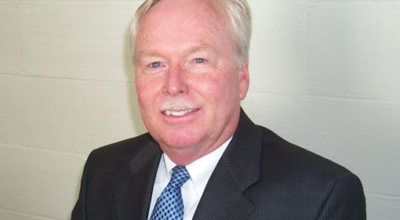When words are not enough
Published 3:11 pm Tuesday, June 28, 2011
The Bible says “Let your ‘yes’ mean ‘yes’ and your ‘no’ mean ‘no.’” I guess that means that we should say what we mean and mean what we say.
If our politicians did that the unemployment rate would go up by the number of news analysts and commentators being put out of work. Those are the people who are employed to tell us, not what the politician said. We can hear that for ourselves.
They are employed so that we can know what they either should have said or meant to say. Plus, they are paid to let us know what is going on behind the scenes causing them to say what they just said. Kind of confusing isn’t it?
Now, for the past few years another expert has been brought into our homes to help us “really and truly” know what is going on. We simply could not get along without the experts, especially the new body language analyzers.
I don’t watch the Bill O’Reilly Show all that much anymore. Not that I’m not interested in what’s going on, but I don’t like the arguing that seems to be the core of the segments. But one of the segments that is sort of interesting to me is when he has the body language expert, Tonya Reiman, on. I never knew an eyebrow could mean so much.
Ms. Reiman lives in New York and is an author, motivational speaker and certified hypnotist. Her biggest claim to fame, though, is her weekly appearance on the O’Reilly Show. Bill seems to really like having Reiman review recent, in-the-news clips and commenting on whether the “yes’s” and “no’s” actually mean yes and no. What would we do without that?
I have to admit that I like her segment, but don’t put too much stock in her analyses. After all, who knows what someone really means and a shifting in the chair or the aforementioned raised eyebrow might mean something or nothing. Still, it’s interesting.
Most of the time it’s politicians that are featured. Recently, President Obama and Israeli Prime Minister Netanyahu were shown sitting next to each other reviewing their meeting for the cameras. As the Israeli PM was talking there was a close-up of the President. His eyes were intense and his brow was furrowed. Ms. Reiman read a dislike for Netanyahu in the President’s scowl.
On other occasions, she has read a discomfort or unease in many bodily actions. Leaning into someone when talking might mean aggression, while keeping a distance during discussions could mean distrust. It’s too subtle for me to understand and I’m not sure any of it means anything.
However, I have had experience with body language and I believe in it.
For example, certain facial expressions and hand signals with upraised fingers, especially when running out in front of someone while driving, have definite meanings. I don’t want to hang around, though, to find out what they mean.
Sometimes words spoken to mean one thing can mean an entirely different thing when accompanied by certain bodily tensions. When a husband has gotten on the last nerve of a wife, and he asks her if it is OK to go play a round of golf.
She might say, “Sure, go ahead!” But pay attention to the volume and the manner of expression. She could mean “Yeah, go ahead, but don’t expect me to sit around here and wash your underwear until you get back.”
Then there are those times when the day has been long and weary and there is, perhaps, a tiny bit of strain. Even an insensible husband senses something amiss and may even ask “Is anything wrong?”
The answer might come back, “No,” but pay attention to that “no.” It could be accompanied by tight or pursed lips and teeth that are clenched together making the voice hard to understand. I think it would be best to keep your distance.
As a pastor, I have come to understand the importance of reading body language. A congregation with eyes wide open, wider than normal could mean that I am engaging the audience and getting through with understanding.
On the other hand, the head that slumps to the shoulder and an accompanying body that is about to fall over on the pew means that I have a member that has lost consciousness. Either, it is time to give the benediction or make the decision to call 911.
When a member takes the toothpick out of his mouth and breaks it into two shorter pieces so that he can prop his eyelids open, no words have to be said. The body language is clear. Another sign that I have gone on too long is when the person on the back row stands up and rakes his hand across his throat as if to say “Cut!” I know it is time to sing the last song.
Body language experts on television are interesting, but hardly breaking any new ground. I could do just as good.
For instance, I might be asked to comment on some congressman or bureaucrat answering some reporter’s question.
“Lynn,” I could be asked. “What’s your opinion?”
“He’s lying,” I would say.
“How do you know and why such a quick and definite analysis?”
“Anyone could tell,” I would say, body language expert that I am. “His lips are moving!”
The Rev. Lynn Roberts is pastor of the Sutton Chapel United Methodist Church, located on Vada Highway.


